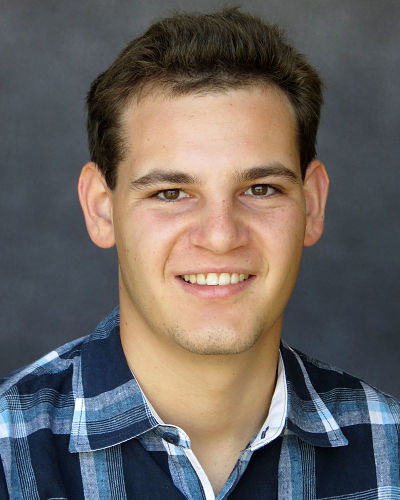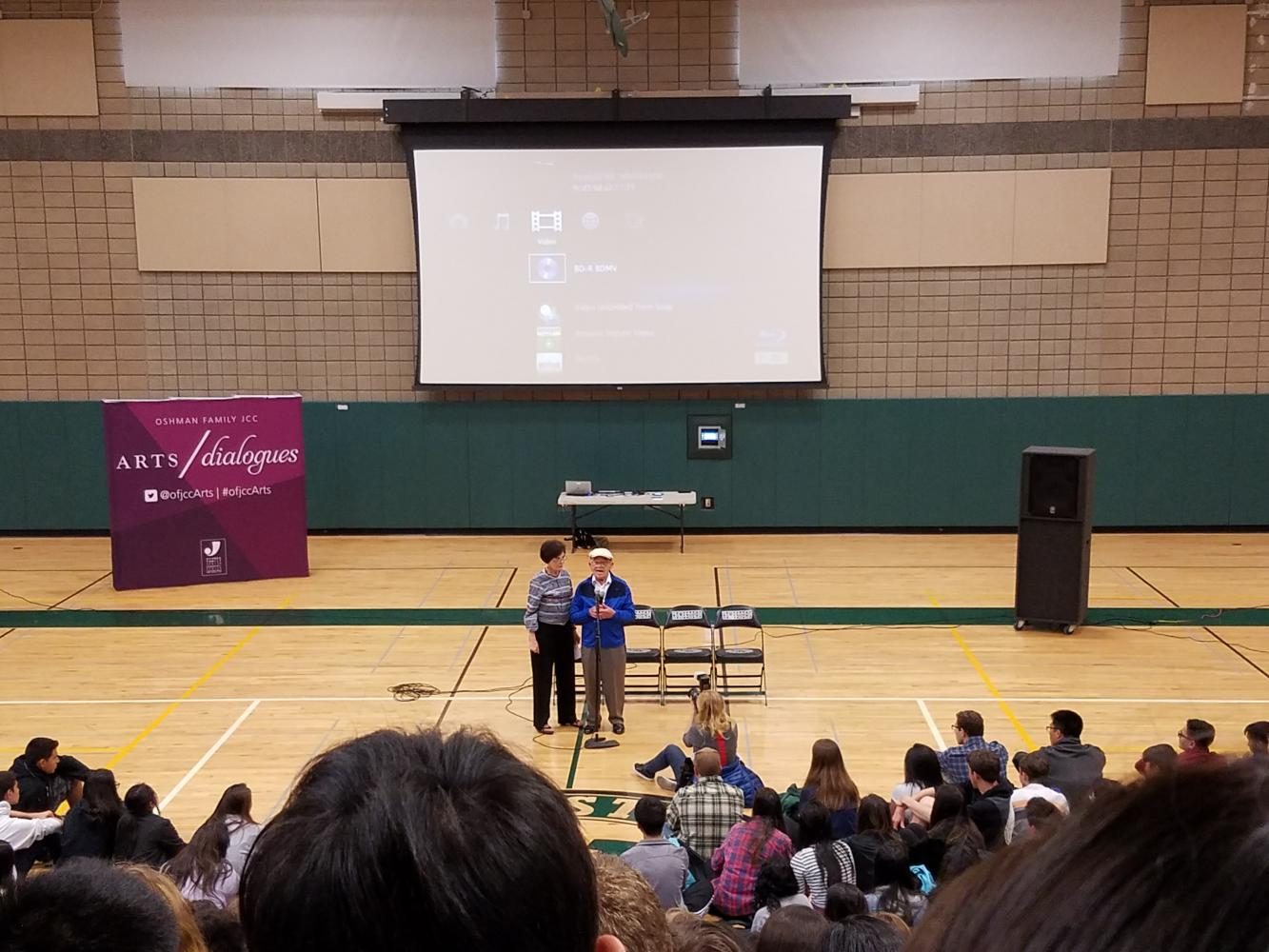The Bar-On Brief: Ben Stern — resisting injustice
Holocaust survivor speaks on campus

I’ve heard several Holocaust speakers over the years. But seeing a documentary video in a packed field house this week, then hearing Ben Stern, the survivor himself, was unlike any other talk I attended in the past.
For one, this was the first time I had heard a Holocaust speaker in a public school. All the other talks and interviews I’ve seen took place in a Jewish environment, whether it be in my Jewish middle school or Jewish memorial gatherings.
But HHS made a special effort to bring in Stern. The administration adjusted the bell schedules to give Stern proper time to speak, and invited the whole student body to watch the documentary.
The special assembly included a documentary Stern’s daughter Charlene made about her father’s life, as well as an open-forum question session from Stern.
The event was undoubtedly eye opening for students who never heard a survivor speak, but it was equally as valuable to me. Every year, there are fewer and fewer survivors and eyewitnesses left to tell their story in person. Seeing and hearing Stern was living proof that brought horrid statistics to life. “Each [Holocaust child] had a name. Each one had a dream, a different dream,” Stern said.
Stern’s story brought us seniors back into reality and made us think about how lucky we are just to have the capability to dream. With finals, prom and senior ditch day behind us, all we’re thinking about is baccalaureate, graduation and the all night party. Stern’s words reminded us of the privilege we have to merely dream.
Stern survived nine concentration camps, two ghettos and two death marches. He is 95 years old, walked across the field house and stood up with ease. That in it of itself is an inspiration.
But what can a group of high school students take away from an unimaginable experience this man went through?
The main message I got out of Stern’s documentary and talk was not to stand idly by. He taught me not accept or settle for the slightest hint of injustice, to always be vocal and stand up for what you believe in.
There’s no debate in the strength of courage Stern had to live through five years and eight months of the Nazi regime. But 30 years later, Stern passed a second test of courage.
A neo-Nazi group was planning a huge demonstration and march through Stern’s home in Skokie, Illinois, the city with the most Jews per capita. Stern knew he could not let these people invade his land.
Stern told us how during the Jewish high holidays, the synagogue’s rabbi advised the congregation to lock the doors to their houses and keep quiet until the march was over. But Stern would not settle for that. Instead, he gathered signatures, wrote newspaper articles for the Chicago Tribune and brought loads of attention to the planned hate march.
Despite countless threats to Stern and his family, he persisted. And thanks to Stern’s efforts, the neo-Nazis canceled their march.
Words cannot describe the emotions running through my body when Stern finished his short talk following the documentary, when the field house, in its full capacity, gave Stern a standing ovation with a thunderous round of applause.
“I was liberated but I was not free,” Stern said several times. True, Stern will never be rid of the nightmares and horrors he went through. But through the telling of his story, through explaining how he fought in the Warsaw Ghetto Uprising, how he went back for his family and how he stood up for his people 30 years after the fact, Stern enlightened us and taught us to resist injustice that may take place in any form.
Stern also humbly said he did not consider himself a hero. But Stern is admired for his courage, outstanding resilience and noble qualities.
I must say I disagree. Stern most definitely is a hero.
And with that, I rest my case.
The Bar-On Brief is a weekly column that runs Thursdays.
Follow Shauli Bar-On on Twitter @shauli_baron









Susan Wilson • May 25, 2017 at 9:18 pm
Shauli, thank you for covering Ben Stern’s visit with such a well-written story. I watched as he spoke meaningfully with each student after the talk who lined up — some with tear-streaked faces — to make personal contact with him. Despite the heartbreaking sadness of his story, his message of perseverance and standing up to hate is ultimately life-affirming and inspiring.